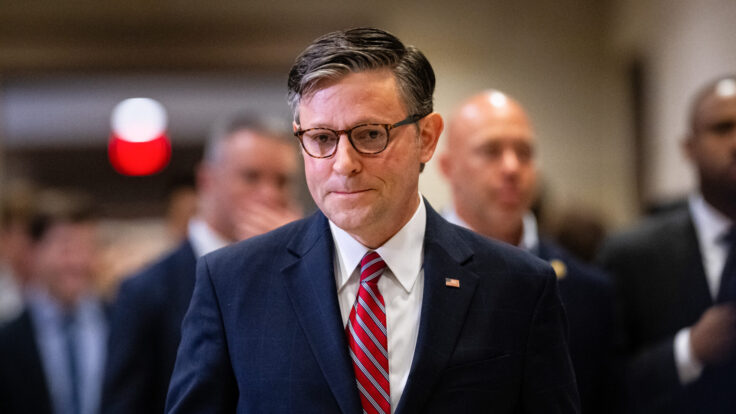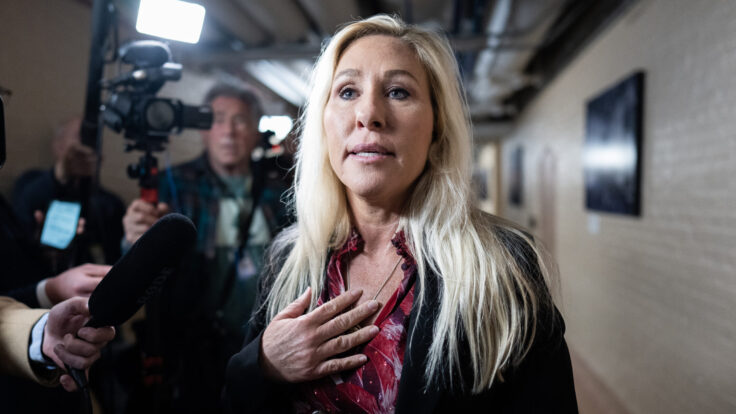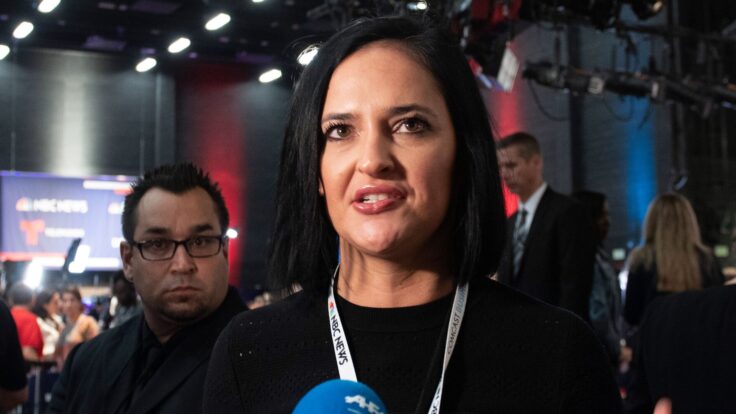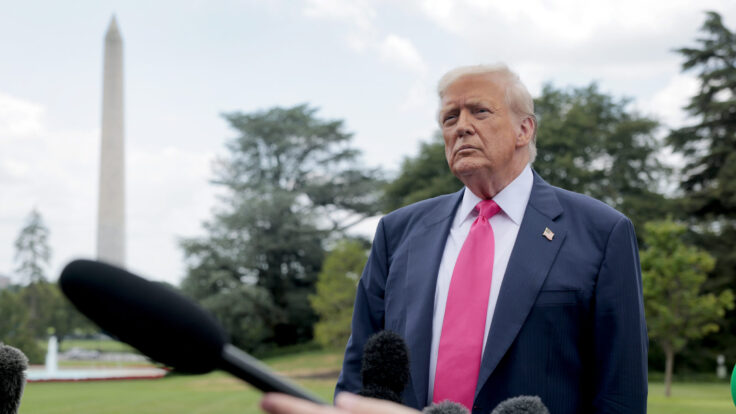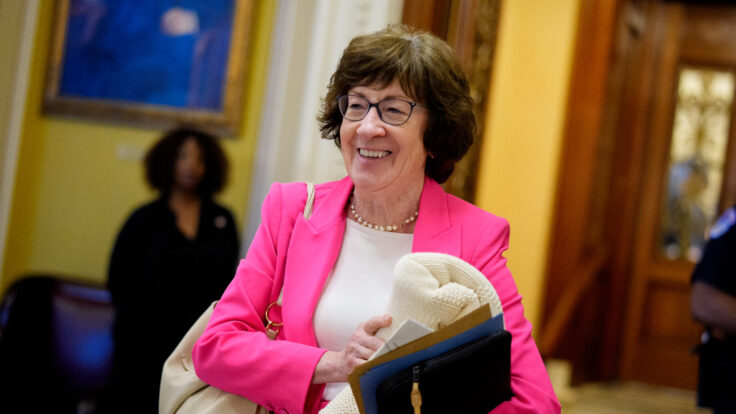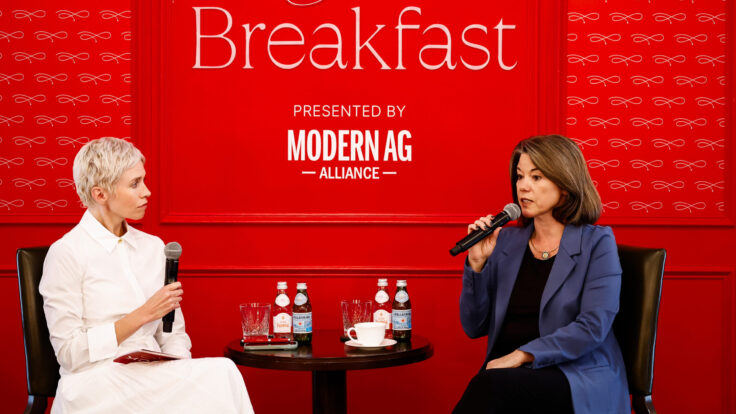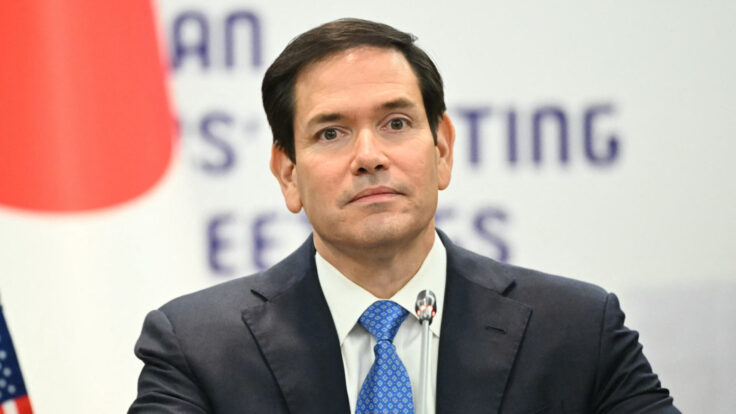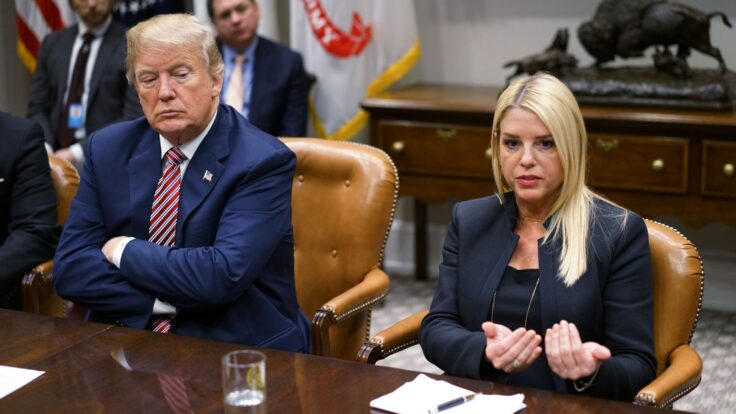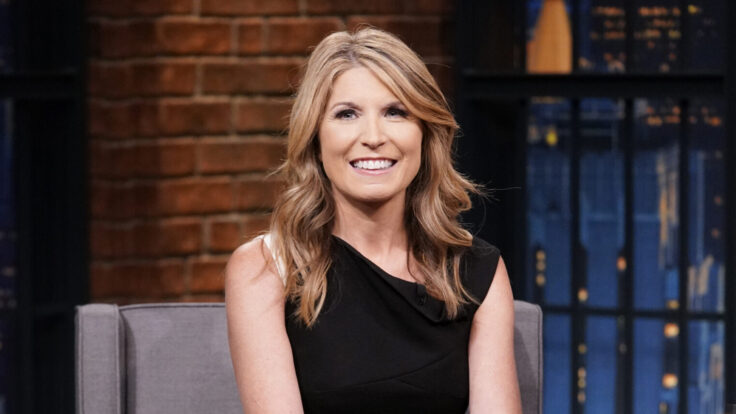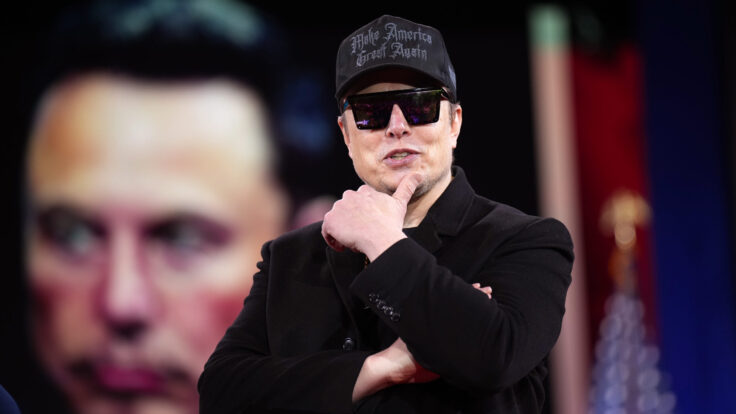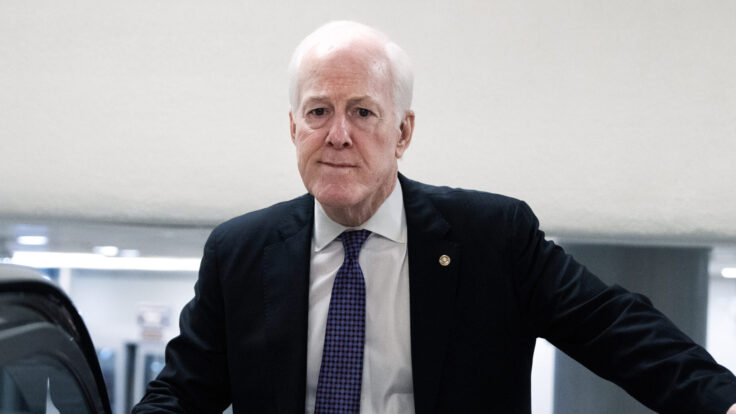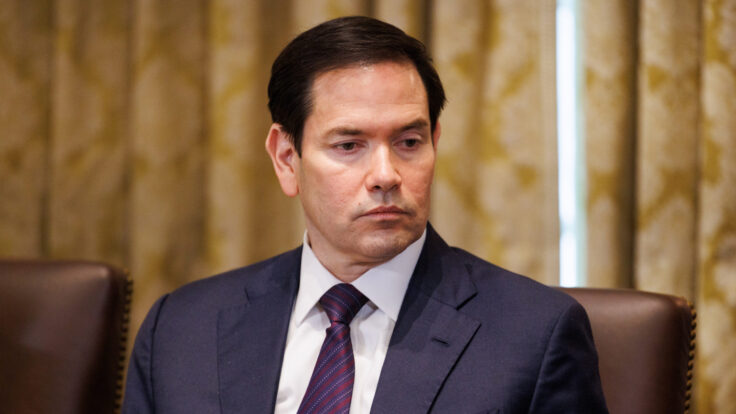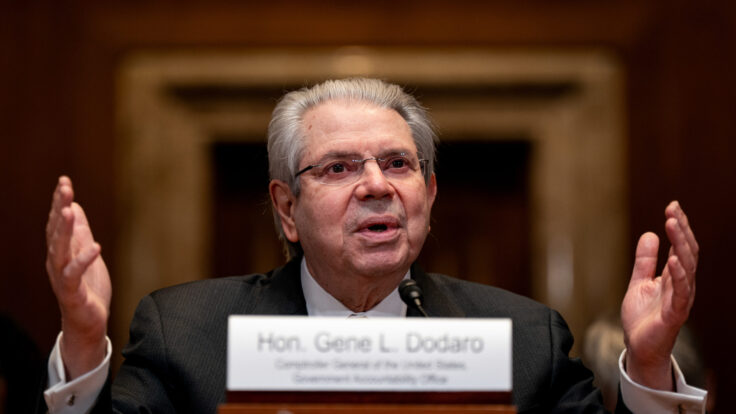|
Welcome back to The Best & The Brightest, I’m Abby Livingston, wishing the best to all of our readers and friends in Los Angeles dealing with the horrific wildfires in the city. Peter Hamby will have an update on the situation there on tomorrow’s episode of The Powers That Be.
In tonight’s edition, we lead with my partner Dylan Byers’s sharp reporting on the the fears engulfing several germane fixtures of the Fourth Estate—The Washington Post, CNN, Politico, etcetera—and the undisguised pre-inauguration genuflecting towards the president-elect from leadership.
But first, here’s the latest on the jockeying in Congress…
|
The Hill Braces for Trump 2.0
|
|
Congress is in session and busy with floor speeches, nominee meetings, and news conferences galore. But everyone knows that even though it feels like Donald Trump is already president again, we’re still in the pseudo-interregnum before the MAGA storm arrives on January 20. Here’s how members are preparing…
|
- Inflation is the new abortion: On Tuesday, Senate Minority Leader Chuck Schumer debuted a new formula for midterm messaging: Restate whatever hair-raising policy suggestion Trump made that day, then pivot to inflation. “I’d agree to working with Donald Trump on renaming the Gulf of Mexico, only if he first agrees to work with us on an actual plan to lower costs for Americans,” he said in a Tuesday floor speech. (In case you missed it, Trump called for renaming the body of water the Gulf of America during a Mar-a-Lago press conference. Marjorie Taylor Greene vowed to introduce a measure “ASAP.”)
House Minority Leader Hakeem Jeffries used the same rhetorical tact on the House side during a morning news conference. Inflation, which the Republicans weaponized against Biden and Harris this fall to great effect, is now ironically shaping up to be for Democrats what Obamacare repeal was for Republicans in 2010: the only foreseeable thing they’re going to be talking about, at least until Trump’s first major screw-up.
- R.F.K. Jr. sees the doctor: Just as combat veteran and Armed Services Committee member Joni Ernst is the Republican senator at the center of Pete Hegseth’s SecDef confirmation bid, Bill Cassidy will be the key Republican when it comes to the R.F.K. Jr. nomination to lead H.H.S. The senior senator from Louisiana is important not only because of his committee—he’s chairman of the Health, Education, Labor, and Pensions committee, which has oversight over H.H.S.—but he’s also a medical doctor who’s respected within the conference.
Just a few days ago, he went on Fox News to say R.F.K. Jr. is wrong on vaccines. And today, Cassidy had an hourlong meeting with Kennedy, after which the senator wouldn’t say whether he’d vote yes on the latter’s confirmation. “First, Cassidy darted on an elevator,” CNN’s Manu Raju reported. “Then, we caught up with him at the Capitol and he responded by saying they had a ‘frank conversation.’ He also said they spoke about ‘every permutation of vaccines.’”
Cassidy is not a limelight seeker, but he does possess a still-precious commodity in the Senate: gravitas. Also, he’s up for reelection next year. All of which makes Cassidy the senator to watch on this particular nomination.
- Rarin’ for a rematch?: Ex-Rep. Matt Cartwright—one of the handful of House Democrats who lost reelection in November—was noncommittal when asked recently if he was thinking about another run against Republican Rep. Rob Bresnahan in Pennsylvania’s 8th District. But he certainly sounded like he’s suiting up. Cartwright has thought a lot about his last campaign (he was quick to note he picked up more voters this
cycle than in his 2022 race, and that he only came up short in the district by two points, while Harris lost by nine). And he gushed with praise for Gov. Josh Shapiro, who will be the top Democrat on the Pennsylvania ballot next cycle and who, of course, enjoyed a “What If…” honeymoon after the Harris-Walz loss.
The Cartwright musings are going over well in senior Democratic circles. Not every defeated incumbent is encouraged to launch a comeback, but
Cartwright was a favorite frontliner among many of the Democrats I spoke with over the last cycle. And this is one of those districts that is so hard for Democrats that he might be the only shot they have to flip it back. Cartwright’s decision to either pass or jump in will be a telling signal of which way the midterm winds are blowing.
|
|
|
|
Yes, we’re all grossed out by billionaires and C.E.O.s genuflecting
to the incoming president, even if much of it is cynical lip-service. But the agony and angst of it all has overly simplified a much more complex challenge.
|
|
|
On Monday morning, Norm Pearlstine, an elder statesman of American journalism and veteran feudal lord of the L.A. Times, Time Inc., Bloomberg, and the pre- Murdoch Wall Street Journal, sent an email to about 150 old friends and associates— A.G., Dean, Jill, Fareed, Marty, Maggie, Bewkes, Andreessen, Mike Moritz, the Grubmans, etcetera—with a copy of his new essay for Columbia Journalism Review. It was a cri de coeur for fearless journalism in the second Trump era, neatly timed to the anniversary of January 6, with the weighty title: Trump, the Public, and the Press.
Chiefly a critique of Jeff Bezos, Patrick Soon-Shiong, and other Trump-accommodating media owners—replete with Maddow-esque detours on the president-elect’s transgressions and some CliffsNotes on Father Coughlin, McCarthyism, and Gingrich’s ’94 Revolution—the essay was a modern exemplar of the righteous alarm-sounding, choir-preaching, cry-in-a-canyon genre. Its straightforward thesis was really best articulated in the subhed: “The billionaire class has proved itself a poor steward of media. Journalists must redouble their efforts to expose the threat to democracy.”
Hours later, Jann Wenner hit reply-all: “Norm: Terrific summary of the objective situation.” Wenner also criticized Bob Iger for Disney’s decision to settle Trump’s defamation lawsuit against ABC News with a $16 million gift to the eventual Trump Presidential Library. That, Wenner wrote, “was a sad and sorry mark on journalism and defense of the first amendment. They had proved their mettle on DiSantis [ sic], but caved when it counted. Keep it up. Spread the Good Word.”
That evening, Parenting magazine founder Robin Wolaner told Norm she was “sharing your brilliant column widely.” Ron Shapiro, the famed sports agent and attorney, commended his freshman roommate (Haverford, class of ’64) on his “uncanny ability to perceive the scope of challenges and communicate their dangers. Keep at it.” On Wednesday, Joel Simon, the director of the Craig Newmark School’s Journalism Protection Initiative, joined the chorus: “I read this piece as a call for action and an admonition that we in journalism must come together and fiercely defend our rights,” he wrote. “No one else is going to save us.”
You can forgive this generation—and, indeed, this industry—for its sense of moral outrage and comparative helplessness during the afterglow of their brilliant careers. Trump’s first term was a golden era for the thriving #Resistance marketplace that Norm and his circle ostensibly long for—one in which media outlets like CNN, MSNBC, The New York Times, and The Washington Post saw record subscriber and audience growth, and Trump journalists (Maggie, Swan, Dawsey, Acosta, et al.) achieved lucrative, if fleeting, pseudo-celebrity status. But as I wrote on November 6, the day after the election, that marketplace has been decimated and is unlikely to return with similar force outside of a few obvious muted venues, such as The Atlantic—itself run by a more sanguine billionaire.
This phenomenon mirrors the “ un-resistance” of the Democratic Party itself. Of course, the Joy Reid genre of “ Kamala ran a ‘flawless’ campaign” liberal punditry has proven to be siloed, ineffective, and exhausting. But, more importantly, the aforementioned businesses, with the exception of the Times, have been significantly diminished both by market forces and the ineptitude of their leaders (a familiar refrain here, I know).
Perhaps most dispiriting for Norm and his ilk, it seems, is the lingering sense that the priorities of the billionaire media owners appear to have changed so dramatically and, to add insult to injury, so unapologetically. Obviously, Elon
Musk’s X is a very different animal than Jack Dorsey’s Twitter. But many others have given the impression of a stunning volte-face. Mark Zuckerberg’s decision to eliminate fact-checking from Facebook and Instagram after investing in it heavily following Trump’s 2016 victory, and the decision to roll the policy out on Fox News, has been widely portrayed as the latest and most extraordinary capitulation by the billionaire class (never mind that Zuck has been moving toward this for some time). Bezos’s newfound optimism and even enthusiasm about Trump, which he articulated at DealBook, stands in stark contrast to the man who stood side by side with Marty Baron at Jamal Khashoggi’s memorial and helped conceive “Democracy Dies in Darkness” as the Post’s slogan.
|
Speaking of The Washington Post…
|
Indeed, the current drama at the Post epitomizes these changing times. Bezos’s decision to block the Harris endorsement, op-ed editor David Shipley’s decision to kill a critical cartoon of Bezos and other tech titans abasing themselves before Trump, and the exodus of top political reporters like Josh Dawsey (to the Journal), Tyler Pager (to the Times), and Ashley Parker and Michael Scherer (to The Atlantic)—these are all significant data points suggesting that this is not Baron’s paper anymore. Meanwhile, Will Lewis’s appointment as publisher and C.E.O. feels like an intentional affront to the pride and sanctimony of reporters who see journalism as a noble calling, rather than a for-profit business. In telling a proud newsroom that “no one is reading your stuff,” reminding union members that they’re welcome to quit if they don’t like his policies, and publicly calling NPR’s media reporter “an activist,” Lewis has proved to be a reckless bull among sacred cows.
But that, of course, is the point. Bezos acknowledged for more than a year that financial success, or at least financial stability, is his top priority for the Post. And while it can be hard to support the idea that alienating your core audience and losing your best-known reporters is good for business, it was also impossible to defend an existing strategy that resulted in around $100 million in annual losses, a near-constant state of internal corporate warfare, and cutting hundreds of employees every year. (The Post laid off another 4 percent of its staff this week. And given that this won’t make much of a dent in its deficit, more is sure to come.)
As for the Dawsey & Co. defections, well, that almost certainly wasn’t part of the plan, and certainly emphasizes Lewis’s leadership shortcomings and lack of finesse. At the same time, these journalists’ “star power” should probably also be contextualized by the fact that, well, no one was reading their stuff.
In any event, it’s understandable that dispirited liberals would look at the current media landscape and fear that the pillar of the fourth estate, itself, was crumbling. But as Semafor’s Liz Hoffman has noted, the current rightward lurch of tech and media leaders was hardly any more theatrical than the progressive shift many of these people made nearly a decade ago. Meanwhile, none of the hard-hitting journalism that really matters to the future of the Republic is actually threatened by Bezos’s decisions to forgo an obvious and ineffectual presidential endorsement, or Shipley’s move to scrap a rather uninspired cartoon, nor even Iger’s decision to settle a defamation lawsuit in order to save his company and network from suffering far greater financial and reputational damage. The real, needle-moving, deeply sourced journalism is still being championed and maintained across all these institutions, including the Post. In fact, one of the Post’s genuine challenges is that liberal political journalism is actually oversaturated, and that the market doesn’t demand 500 political reporters covering the same 55,000-square-foot White House.
|
|
Instead, the more significant threat to the fourth estate is the decline of these media businesses, themselves, which in turn diminish their clout. As Politico’s John Harris argued a few years back, “the dilution of institutional power in an age of media hyper-saturation” has deprived legacy media organizations of their influence, which, in turn, “is a gift to public officials seeking to evade accountability.” And this problem is especially acute at legacy organizations that have suffered under bad owners or bad leaders who accelerated the pace of decline. But the weakening of the fourth estate isn’t happening now and because of Trump’s election—rather, it started years ago, and presaged it.
In that regard, what Norm and his friends should really be pining for are successful business models that will allow journalistic institutions to endure, and to do so independent of the generosity of any billionaire benefactor. In other words, exactly what Bezos, himself, is pining for at the Post, which, as he put it more than a year ago, is profitability and “financial success.” At present, it seems as though he and Lewis intend to get there by transforming the company into a nonpartisan global news report that doesn’t depend on star talent or partisan affinity—The Economist meets USA Today, perhaps, or whatever Semafor initially set out to be when it aspired to reach 200 million college-educated English readers. It’s actually an incredibly noble business goal, and even an editorial one, too.
Whether Jeff and Will know how to get there is another matter. Bezos said at DealBook that he has some unspecified “ideas,” but time may prove that he was far too busy with other pursuits in global and intergalactic domination to be the savior the Post needed, and that Will was, in fact, the unscrupulous charlatan that his critics have colored him as. Alternatively, they may have a plan that takes years to execute, but which will render the Baron-era romanticism a footnote. But they were never going to get where they wanted to go with the paper Fred Ryan left them, nor is Bezos likely to be satisfied with an only marginally profitable business that caters to an audience of mere millions. The Times may be the benchmark for success
in this industry, but Bezos is used to far higher profit margins.
In another reply on the email thread, the Pulitzer Prize-winning reporter Jonathan Kaufman recalled running into Norm years ago in the Bloomberg L.P. lobby in New York, where the seasoned journalist told him: “You know what I have learned in my years of journalism, Jonathan? Choose your billionaires wisely.” Like many on the chain, Kaufman had concluded that “our current crop of billionaires” weren’t the answer.
On the other hand, who else would be able to tolerate years of financial losses, union fights, internal headaches, and shifting political winds while the industry figures out what the hell it’s going to do? And what if—just what if—these transformations, however painful in the moment, actually work out? Lost in all the sturm und drang about the Post is the fact that, without Bezos, it would likely be out of business.
|
|
|
|
Join Emmy Award-winning journalist Peter Hamby, along with the team of expert journalists at Puck, as they let you in on the conversations insiders are having across the four corners of power in America: Wall Street, Washington, Silicon Valley, and Hollywood. Presented in partnership with Audacy, new episodes publish daily, Monday through Friday.
|
|
|
|
Unique and privileged insight into the private conversation going on inside Wall Street, as told by the best-selling journalist and former M&A banker.
|
|
|
Need help? Review our FAQ page or contact us for assistance. For brand partnerships, email ads@puck.news.
You received this email because you signed up to receive emails from Puck, or as part of your Puck account associated with . To stop receiving this newsletter and/or manage all your email preferences, click here.
|
|
Puck is published by Heat Media LLC. 107 Greenwich St, New York, NY 10006
|
|
|
|
